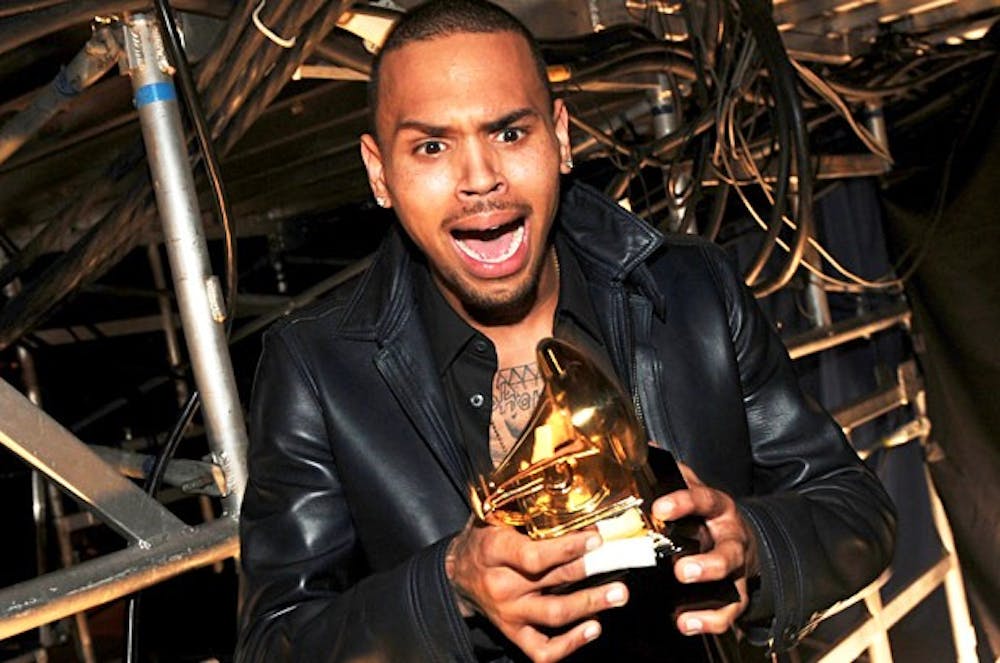Whether focused on the performances, celebrity(mis)behavior or on the award decisions themselves, the Grammys are always controversial. This year, Chris Brown's presence at the award show delegitimized the Grammys' messages about domestic violence.
After her stellar Super Bowl performance, Katy Perry went to the Grammys with more than dancing with sharks on her agenda. Her beautiful performance of “By the Grace of God” was reworked to have an anti–abuse message. Brooke Axtell—an activist and survivor of human–trafficking—spoke before the performance and President Obama sent in a pre–recorded video.
In her powerful speech, Axtell told the audience,“Authentic love does not devalue another human being. Authentic love does not shame and abuse.” In his video, Obama compliments the nominees, saying, “Tonight we celebrate artists whose music and message help shape our culture.” He continues, imploring Americans to “change our culture for the better by ending violence against women and girls.” This statement, in the context of Chris Brown's almost–Grammy, is a loaded contradiction.
This year, Chris Brown was nominated for Best R&B performance for his song “New Flame.” As a nominee, Brown is one of the artists that Obama claims the Grammys wants to celebrate for helping to shape our culture. Which is strange, because Chris Brown was arrested in 2009 for brutally assaulting his ex–girlfriend, former Grammy winner and member of the 2015 Grammys audience, Rhianna. How can the Grammy committee ask to change American culture when they nominate an artist who directly opposes the message they are advocating?
Even looking past Brown’s other instances of misconduct, which range from homophobic hate crimes to random senseless violence, Chris Brown's actions—and criminal record—directly opposes the main social message that the Grammys sought to promote this year: domestic and sexual violence are unacceptable. The hypocrisy is painful; every person in the room knows of Brown’s crimes.
One could argue that music should be evaluated separately from the artist who creates it. But especially today, when the internet allows fans to be in constant contact with the artists they admire, it's difficult to believe that music’s message is not influenced by its creators. Musicians like Kanye West, David Byrne and Jay Z all have personalities that are an essential part of how a listener perceives their music. Kanye’s gargantuan ego, Byrne’s experimental artistry and Jay Z’s political activism directly informs the listener and changes flavor of their music’s message. And so, in turn, Chris Brown’s multiple assaults make his music very unsavory.
Later in the show, Pharrell Williams, Prince, John Legend and Beyonce made various references to the Mike Brown police brutality case. Through their music, the artists imparted important messages about equality and justice. And Katy Perry’s performance, in isolation, is a very laudable attempt at making a worthwhile statement. But what the Grammys committee needs to understand, if it wants any of its messages to carry weight, is that we cannot have it both ways. We cannot denounce abuse while celebrating the music and career of the perpetrator.

